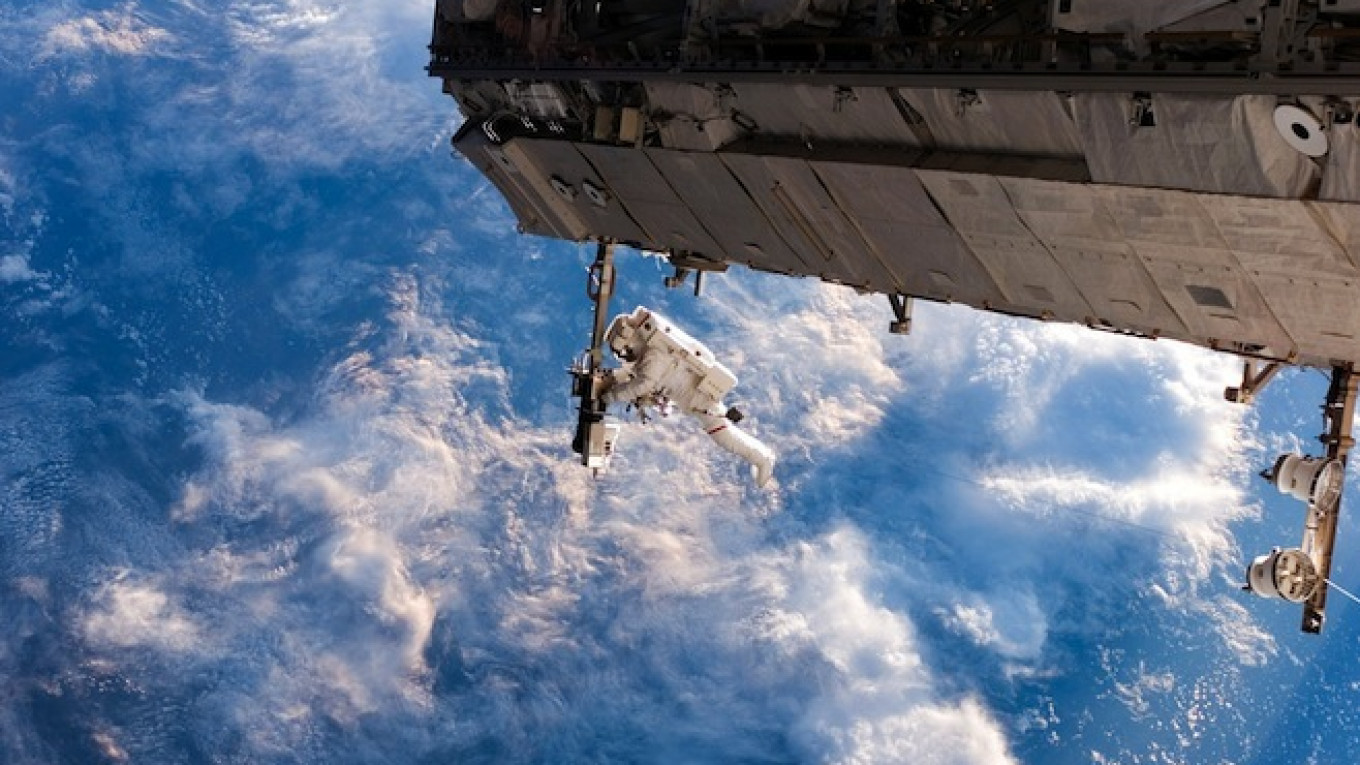The United States has rejected a Russia-led proposal in the United Nations to ban the first deployment of space-based weapons, pointing to what the U.S. delegation characterized as weak wording that overlooks an entire class of ground-based space weapons.
Known as the "no first placement" initiative, the proposed UN resolution was drafted by Russia in 2014 as an apparent bid to place further restrictions on the militarization of space — already prohibited broadly by the 1967 UN Outer Space Treaty.
The U.S. delegation to the UN's First Committee of the General Assembly, a body where international talks on disarmament issues are often discussed, voted against the draft resolution on Wednesday, as did Israel, Georgia and Ukraine.
European Union nations abstained from the vote. Nations that voted in favor of Russia’s proposal include China and Syria.
In an explanatory note leading into the vote, the head of the U.S. delegation to the First Committee, Robert Wood, explained that “the United States finds that Russia's NFP initiative contains a number of significant problems,” primarily that space weapons are not adequately defined in the resolution.
“As a result, [nations] will not have any mutual understanding of the operative terminology,” making it difficult to enforce or verify adherence to the provisions of the non-binding resolution, if adopted by the General Assembly.
Wood continued, pointing out that the resolution as it currently stands lacks mechanisms to build trust and verify political commitments to “not be the first to place weapons in outer space,” and more important — the initiative “focuses exclusively on space-based weapons.”
This is not an issue of semantics, in the U.S. view. While agreeing to not deploy space-based weapons, the current wording of Russia's proposal makes no mention of limiting the deployment of ground or air-based anti-satellite weapons, such as one tested without warning by China in 2007.
That test, in which a ground-launched missile flew into space, intercepted and destroyed a defunct Chinese weather satellite, was a monumental stride in anti-satellite weaponry. It also created a massive cloud of space debris that could threaten the International Space Station, and satellites.
“It [the proposal] is silent with regard to terrestrially based anti-satellite weapons, and thus could contribute to increasing, not reducing, mistrusts and miscalculations,” Wood said.
He stressed that the U.S. believes that it is in the interest of all parties to avoid a space arms race, but that measures should be in place to prevent a ground-based conflict from extending into space through the use of ground-based anti-satellite weapons.
Russia, the United States and China are all testing various types of space weapons, ranging from China's anti-satellite missiles, to the mysterious U.S. military space shuttle. Russia appears to be testing its own space weapons: Over the last year, a curious Russian object in space has been conductive maneuvers that experts say is characteristic of a satellite-killing spacecraft.
Contact the author at m.bodner@imedia.ru
A Message from The Moscow Times:
Dear readers,
We are facing unprecedented challenges. Russia's Prosecutor General's Office has designated The Moscow Times as an "undesirable" organization, criminalizing our work and putting our staff at risk of prosecution. This follows our earlier unjust labeling as a "foreign agent."
These actions are direct attempts to silence independent journalism in Russia. The authorities claim our work "discredits the decisions of the Russian leadership." We see things differently: we strive to provide accurate, unbiased reporting on Russia.
We, the journalists of The Moscow Times, refuse to be silenced. But to continue our work, we need your help.
Your support, no matter how small, makes a world of difference. If you can, please support us monthly starting from just $2. It's quick to set up, and every contribution makes a significant impact.
By supporting The Moscow Times, you're defending open, independent journalism in the face of repression. Thank you for standing with us.
Remind me later.






